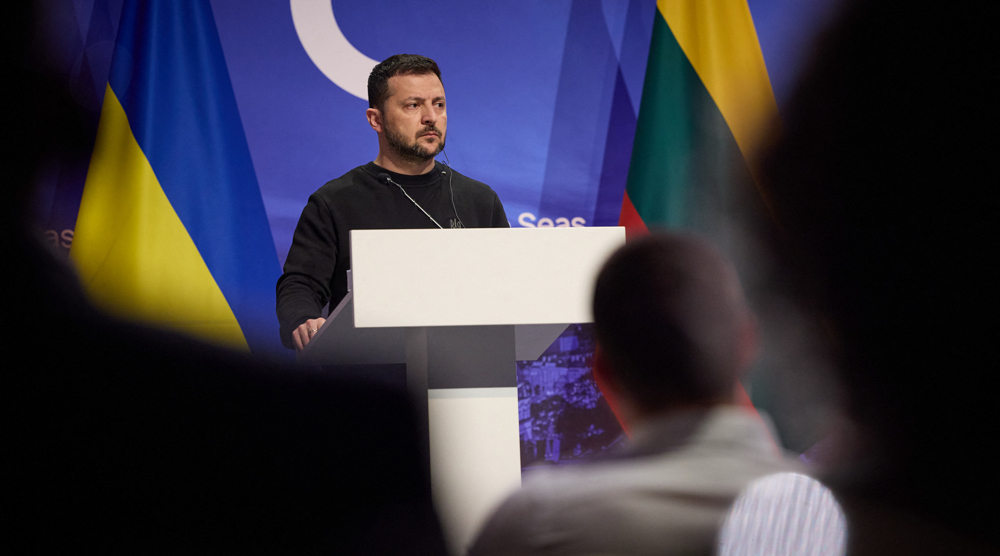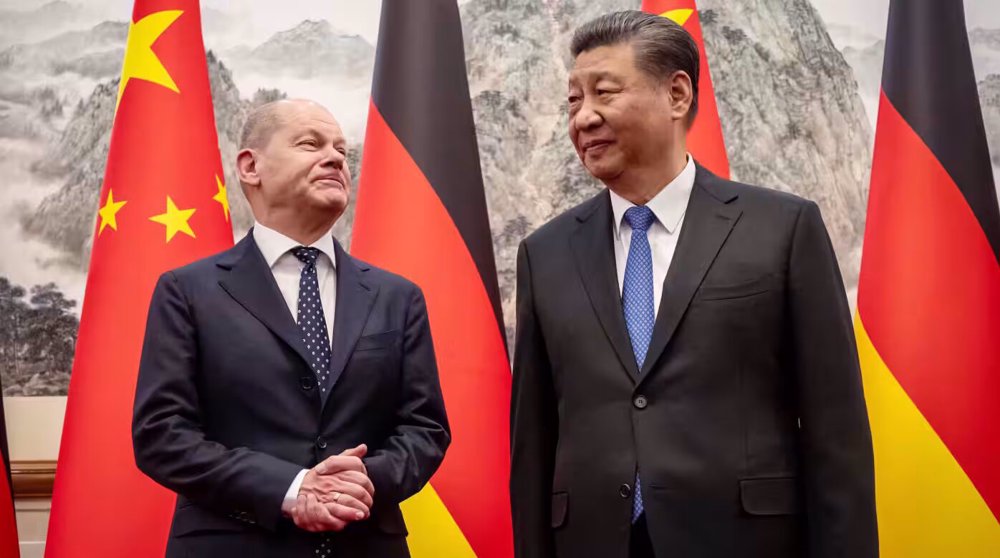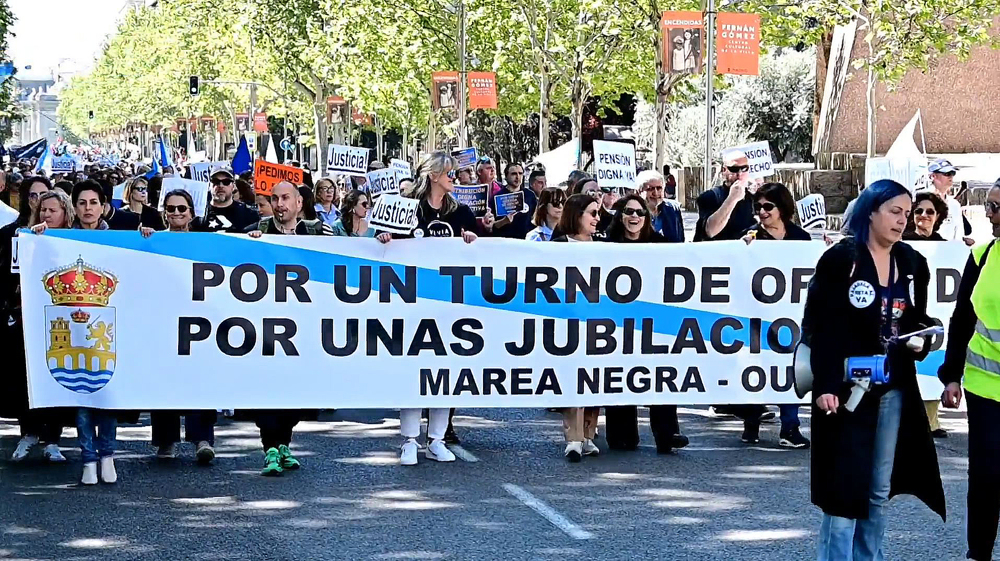Kosovo independence: A timeline
Kosovo declared independence from Serbia in 2008. Today, the self-proclaimed republic, with an overwhelmingly Muslim population, is celebrating the 10th anniversary of the freedom that only came after a decades-long struggle.
In the early 1990s, when Serbia was still part of Yugoslavia, Kosovo’s 2 million ethnic Albanians took the first steps towards forming a state of their own but Serbia’s then-President Slobodan Milosevic did not like the idea.
Soon, Serbian military forces were ordered to crack down on the separatist movement. The struggle fueled guerrilla warfare in the region and prompted a deadly bombing campaign by the NATO alliance, kicking off one of the darkest eras of the recent history.
Below is a brief sequence of key events since 1989:
June 1989 – Milosevic begins stripping Kosovo from its autonomy and makes it clear on the 600th anniversary of the Battle of Kosovo, when the Ottomans prevailed over the Serbs, that he was not willing to give up control of the province.
July 1990 - Ethnic Albanian lawmakers declare independence, proclaiming the existence of the Republic of Kosova. Belgrade hits back by dissolving Kosovo’s autonomous assembly.
July 1992 – Popular writer and political leader Ibrahim Rugova is elected the first president of Kosovo in elections attended only by ethnic Albanians. Under Rugova’s rule, ethnic Albanians try to build a parallel government by forming independent but clandestine organizations that follow principles of non-violent civil disobedience. A Serb crackdown ensues.
1998 - Kosovo Liberation Army (KLA) steps up guerrilla warfare amid growing allegations that Serbian military forces kill Kosovars indiscriminately. Yugoslavia yields to international pressure and signs a ceasefire agreement and partially withdraws.
January 1999 – The shaky ceasefire comes to and end following the mass killing of 45 Kosovo Albanians by Serbian forces in central Kosovo.
March - Peace talks in France bear no positive result. NATO begins bombing Yugoslavia in response to atrocities in Kosovo without a UN mandate.
May - Rugova is exiled to Rome and spends a brief time there before returning in summer, as NATO prepares to deploy foot soldiers.
June - Milosevic agrees to pull back his troops from Kosovo and NATO agrees to end bombing. Some 45,000 NATO troops enter Kosovo shortly after Serbian forces leave. Serb civilians flee Kosovo.

September 2000 – Milosevic is arrested on corruption charges but is later on extradited to The Hague where he faces war crime charges.
November 2001 - Kosovo holds first general election. Rugova is elected president once more.
March 2004 – Violence breaks out following the suspicious drowning of three ethnic Albanian boys in Kosovo. Albanian mobs attack Serbs in the worst violence since 1999. The clashes leave 19 people killed and hundreds of homes torched.
March 2005 – Kosovo’s Prime Minister Ramush Haradinaj is charged with war crimes and resigns to face trial in The Hague only to be acquitted later on.
October - UN Security Council agrees to hold talks on Kosovo’s future. Former Finnish president Martti Ahtisaari is chosen as the UN special envoy to mediate.
January 2006 - Rugova dies of lung cancer.
March – Milosevic dies in his prison cell in The Hague.

April 2007 - With no compromise in sight, Ahtisaari proposes independence under the European Union’s supervision.
June – Russia declares at a G8 summit in Germany that it will veto a draft UN resolution circulated by Western powers. Then-US President George Bush insists “the time is now” for Kosovo’s independence.
August – The US and the EU hold three-way talks with Russia to broker a diplomatic solution.
December - Talks hit dead-end. The West throws support behind Ahtisaari’s plan.
Jan 9, 2008 - Ex-guerrilla commander Hashim Thaci is elected prime minister, and promises Kosovo will declare independence “within weeks” in coordination with the West.
October – The UN asks the International Court of Justice (ICJ) on Serbia’s request to make a ruling on the legality of Kosovo’s independence.
July 2010 – The ICJ holds that Kosovo’s unilateral declaration of independence was not in violation of international law.
Post-independence
As of February 2018, 112 out pf 193 UN states have recognized Kosovo’s independence, including all of its immediate neighbors but Serbia.
While the Republic has yet to secure a seat at the UN, it has already become a member of major international institutions such as the International Monetary Fund as well as the World Bank.
In April 2013, the first signs of a rapprochement appeared as the government of Kosovo and the Serb minority’s Community Assembly of Kosovo and Metohija agreed to allow the small community have its own police and court of appeals.
Thaci said in 2014 that Kosovo was planning to establish its Ministry of Defense by 2019 and join NATO.
Latest reports suggest that around 13,000 people, mostly ethnic Albanians lost their lives in the deadly struggle. Some 2,000 more are believed to be still missing in mass graves.
US vetoes Palestinian request for full UN membership
Iran sufficed to striking part of Israel’s military positions: FM to UN chief
IRGC: Israel’s Dimnoa nuclear reactor not among Op. True Promise’s targets
VIDEO | West Asia awakens
'Stop any further Israeli adventurism,' Iran FM tells Security Council
Google fires 28 employees for protesting military deal with Israel
Burkina Faso expels three French diplomats over ‘subversive activities’
Iran slams G7 statement, vows no iota of doubt to respond to aggression











 This makes it easy to access the Press TV website
This makes it easy to access the Press TV website